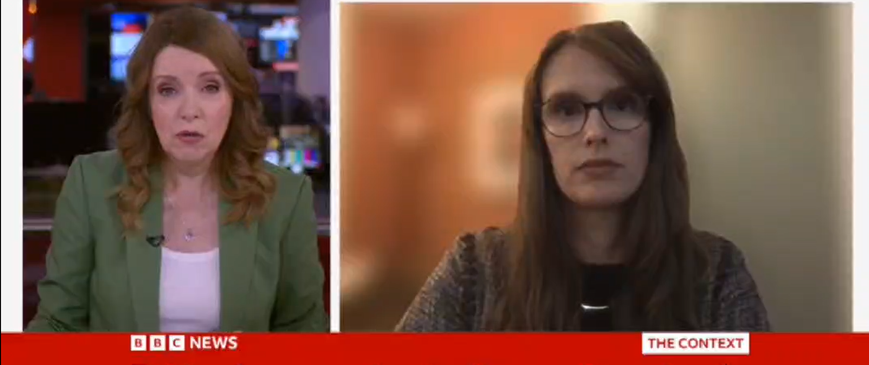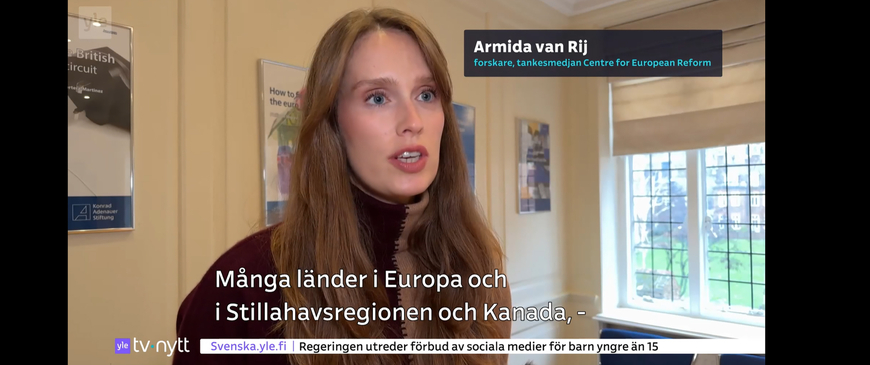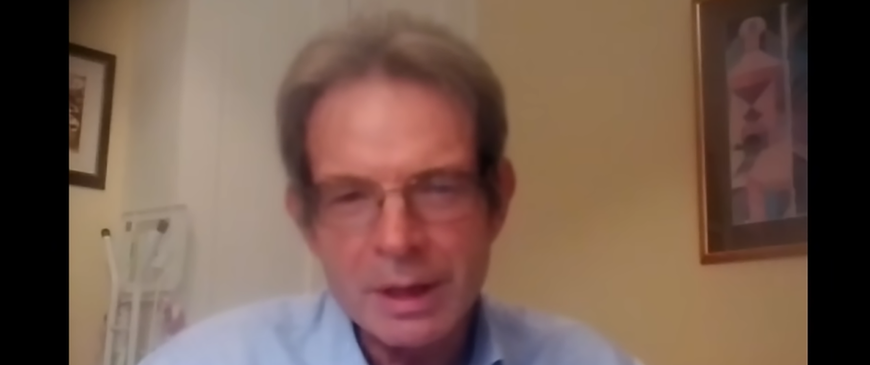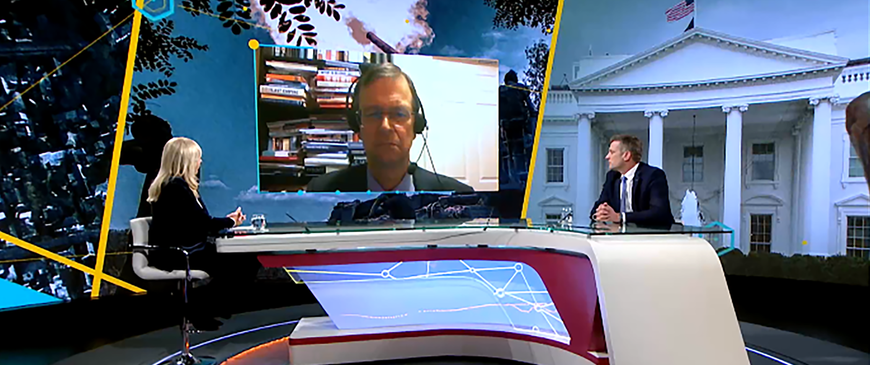Press
Path out of eurozone crisis spells prolonged economic pain
11 November 2011
Reuters
"On current policy trends, a wave of sovereign defaults and bank failures are unavoidable. Much of the currency union faces depression and deflation," write Simon Tilford and Philip Whyte in a new paper for the CER think-tank. ... What is needed, Tilford and Whyte argue, is easier policy by the ECB, including a higher inflation target of 3 percent that would enable deficit countries to regain competitiveness by holding down wage growth without slumping into deflation. ... "A new fiscal regime needs to be accompanied by a symmetric imbalances procedure.
Europe's future: division or unity?
10 November 2011
Public Service Europe
But simply creating stricter rules to enforce discipline will not solve the problem, a new study by analysts at the CER claims. In a report published today Simon Tilford and Philip Whyte argue that the crisis not a result of the "errant behaviour" of a few countries and that monetary union held together by a set of rules rather than full fiscal union is "deeply unstable". They write: "The eurozone will remain an unstable, crisis-prone arrangement unless critical steps are taken to place it on a more sustainable institutional footing.
Leaders tumble in crisis as Europe cracks at seams
09 November 2011
Edmonton Journal
"We have come to the end of a unique period of political and economic consensus," Hugo Brady of the CER told AFP. ... "Where do we go if we don't save the euro? Will we want further European integration?
Unemployment rates will rise, analysts say
09 November 2011
The Prague Post
"Households are not spending, firms are not spending, and governments are making cuts," said Simon Tilford, chief economist at the CER in London. "There is no doubt that fiscal austerity is exacerbating economic weakness." ... Tilford points to Germany's ability to control wage growth in the past decade as the primary factor in relatively strong economic growth numbers through early this year, a phenomenon that saw corporate profits soar as a percentage of GDP but likely saw those profits poorly distributed.
NATO's noble words go for naught
07 November 2011
The New York Times
"NATO officials are working on list of about 150 areas where NATO armed forces could strengthen their joint efforts," argued Clara Marina O'Donnell, a security analyst at the CER in London in a recently published paper.
France unveils tough austerity plan
07 November 2011
Voice of America
"The [French] recovery has already ground to a halt and it's sliding back into a recession," he said. "That is not the time that any government should be cutting spending. All that risks doing is pushing the economy further into recession," said Simon Tilford, chief economist at the CER.
Europe's economic struggles continue despite Greek deal
07 November 2011
Voice of America
Simon Tilford of the CER, says the ECB must step in - something its top officials are reluctant to do. "The problem at the moment is that we’re in a period of exceptionally weak economic growth. We're going through unprecedented economic weakness."
Greece cobbles together interim government as Italy teeters
07 November 2011
The Christian Science Monitor
“A new government will help,” says a skeptical Philip Whyte of the CER in London. “But even a unity government will be hard pressed to accept the measures that Greeks are being asked to swallow.
In turmoil, Greece and Italy deepen euro crisis
07 November 2011
The New York Times
“In the longer run, the eurozone cannot be viable unless something is done to tackle the imbalances that gave rise to the crisis,” said Charles Grant, the director of the CER, a London research institute. “Either there has to be a convergence of unit labor costs, via effective reform in the south, or there must be permanent transfer union, with payments flowing from north to south.”
Debate: Should we feel sorry for Greece?
07 November 2011
BBC News
Greece is at the eye of the storm gathering over the world economy, and threatening to tear the eurozone apart. But should the rest of us be sorry for Greece, or angry? Here, two experts present opposing arguments for and against sympathy.
AGAINST SYMPATHY - Nicholas Walton, European Council on...
AGAINST SYMPATHY - Nicholas Walton, European Council on...
Political uncertainty lingers in Greece
05 November 2011
The New York Times
Charles Grant, director of the CER, said that if Greece defaulted or prepared to leave the euro zone before the bloc could build a big enough bailout mechanism "and before there’s a credible Italian government," it could "bring down the whole euro system."
The gridlock where debts meet politics
05 November 2011
The New York Times
As Simon Tilford, chief economist of the CER, a research group in London, said, "Countries will face tougher choices."
Papandreou backs down on vote for Greece's bailout deal
04 November 2011
USA Today
"They have no chance of returning to debt sustainability on the current course," said Simon Tilford of the CER. "Their economy is in free fall. Today's announcement will do nothing to reassure investors who believe that default - probably a disorderly one - is now inevitable."
The euro crisis puts political leaders at risk
04 November 2011
National Public Radio
"Investors know that the European Union doesn't have the firepower to bail Italy out," says Simon Tilford, chief economist at the CER in London.
Greece exit from euro poses EU legal, political headache
04 November 2011
Agence France Presse
"On balance, I think Greece is likely to be outside the eurozone within 12 months but I don't believe it will be forced out of the EU. It would be playing with fire," Simon Tilford, chief economist at the CER told AFP.
European rescue could spell long-term pain for UK
03 November 2011
CNBC
"There's a view among the most eurosceptic that Britain's future does not lie in the EU in any case," said Philip Whyte of the CER. "They are saying Britain should withdraw from the EU and then trade with it governed by WTO rules."
La sortie de la Grèce de l'euro, un casse-tête juridique et politique
03 November 2011
Liberation
Si les Grecs finissent par rejeter le plan de sauvetage de leur pays, «il sera de plus en plus difficile de concevoir comment ils peuvent rester dans la zone euro», estime Simon Tilford, économiste en chef au CER, un centre de réflexion londonien.
Stephanomics - Financial crisis
03 November 2011
BBC News
Stephanie Flanders is joined in the studio by Willem Buiter, chief economist at Citigroup, Jim O'Neill, chairman of the asset management division of Goldman Sachs and Katinka Barysch, deputy director of the CER for her series of debates about the financial crisis.
Greece case highlights slump in euro loyalty
02 November 2011
Agence France Presse
"The euro crisis has led national parliaments in Germany, the Netherlands, Finland and elsewhere to question their hitherto unchallenged support for European integration," said Hugo Brady of the London-based CER.
China is more Wile E Coyote than Superman, professor warns Europe
01 November 2011
The Guardian
"If we want them to chip into any new vehicle we have to give them a guarantee … For policy and finance circles, the expectations [of China] are very low – and hence realistic," said Katinka Barysch, deputy director of the CER in London.














